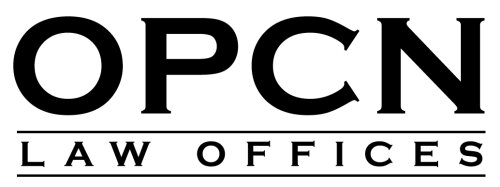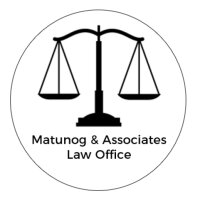Best Cannabis Law Lawyers in Philippines
Share your needs with us, get contacted by law firms.
Free. Takes 2 min.
Or refine your search by selecting a city:
List of the best lawyers in Philippines
About Cannabis Law in Philippines
The legal status of cannabis in the Philippines is restrictive. Under the Comprehensive Dangerous Drugs Act of 2002, or Republic Act No. 9165, cannabis is classified as an illegal substance, and both possession and use are punishable by law. While there have been discussions and efforts to explore the medicinal use of cannabis, such initiatives have not yet resulted in a change in legislation. As of now, cannabis remains illegal for recreational and medical use in the country.
Why You May Need a Lawyer
Navigating cannabis laws in the Philippines can be complex due to strict penalties and legal nuances. Here are some situations where consulting a lawyer may be necessary:
- Criminal Charges: Facing charges for possession, distribution, or cultivation of cannabis can have serious legal repercussions.
- Medical Use Advocacy: If you are involved in advocacy for medical cannabis use, legal guidance can help navigate potential legislative changes and compliance issues.
- Business Interests: Individuals or companies interested in the potential cannabis industry, should laws change, will require legal advice to stay within legal boundaries.
- Legal Reform Involvement: Participating in any initiatives or organizations promoting changes to cannabis laws might require an understanding of legal frameworks and responsibilities.
Local Laws Overview
Under current Philippine law, the following are key aspects concerning cannabis:
- Possession: Any amount of cannabis is illegal and subject to penalties, including fines and imprisonment.
- Distribution: Selling or distributing cannabis can lead to severe legal penalties, often worse than mere possession.
- Cultivation: Cultivating cannabis plants is illegal and carries heavy penalties, marking it as a severe offense.
- Drug-Free Workplace: Businesses are mandated to uphold drug-free environments, and violations can have legal implications for employers and employees.
Frequently Asked Questions
Is it legal to use cannabis for medical purposes in the Philippines?
No, as of now, cannabis remains illegal for medical purposes under Philippine law.
What are the penalties for possessing cannabis in the Philippines?
Penalties range from fines to life imprisonment, depending on the quantity and circumstances of the case.
Has there been any movement towards legalizing medical cannabis?
Yes, there have been discussions and proposed bills in Congress; however, no changes have been made to the law.
Is CBD legal in the Philippines?
No, products containing CBD, which are derived from cannabis, are also considered illegal.
Can I be tested for cannabis use at work?
Yes, mandatory drug testing is implemented in many workplaces, particularly in sensitive industries.
What should I do if I’m accused of a cannabis-related crime?
Seek legal assistance immediately to understand your rights and the best course of action.
What is the process for advocating for changes in cannabis legislation?
Engage with legal professionals and advocacy groups to ensure your activities are within legal boundaries and effectively contribute to the cause.
Are there safe/legal products containing cannabis derivatives available?
Currently, no cannabis derivatives are legally approved for sale or use in the Philippines.
Does medical cannabis advocacy have support in the government?
There is some support in certain government sectors, but substantial policy changes have yet to occur.
How can I stay informed about cannabis laws and potential changes?
Follow news reports, engage with advocacy groups, and consult legal professionals who specialize in drug policy and legislation.
Additional Resources
For more information or assistance regarding cannabis laws in the Philippines, consider reaching out to the following:
- The Philippines Department of Health
- Non-governmental organizations focusing on drug policy reform
- Legal assistance groups such as the Integrated Bar of the Philippines
- Local and international advocacy organizations dedicated to drug policy reform
Next Steps
If you need legal advice concerning cannabis, consider taking these steps:
- Consult a Lawyer: Find a legal professional who specializes in cases related to drug offenses or policy advocacy.
- Gather Information: Collect all relevant information and documents related to your situation to present to your legal advisor.
- Stay Informed: Regularly update yourself on any legislative changes or public discussions that may affect the legal landscape for cannabis in the Philippines.
- Join Advocacy Groups: If involved in advocating for legislative change, consider joining groups that work within legal parameters to promote reform.
Lawzana helps you find the best lawyers and law firms in Philippines through a curated and pre-screened list of qualified legal professionals. Our platform offers rankings and detailed profiles of attorneys and law firms, allowing you to compare based on practice areas, including Cannabis Law, experience, and client feedback.
Each profile includes a description of the firm's areas of practice, client reviews, team members and partners, year of establishment, spoken languages, office locations, contact information, social media presence, and any published articles or resources. Most firms on our platform speak English and are experienced in both local and international legal matters.
Get a quote from top-rated law firms in Philippines — quickly, securely, and without unnecessary hassle.
Disclaimer:
The information provided on this page is for general informational purposes only and does not constitute legal advice. While we strive to ensure the accuracy and relevance of the content, legal information may change over time, and interpretations of the law can vary. You should always consult with a qualified legal professional for advice specific to your situation.
We disclaim all liability for actions taken or not taken based on the content of this page. If you believe any information is incorrect or outdated, please contact us, and we will review and update it where appropriate.
Browse cannabis law law firms by city in Philippines
Refine your search by selecting a city.















